Cuban coffee is celebrated worldwide for its intense flavor and extraordinary strength. The rich and bold taste of this unique beverage has left coffee enthusiasts wondering about its secret to potency.
Why is Cuban coffee so strong?
A combination of factors, such as the selection of beans, the brewing process, and Cuban cultural traditions, are responsible for its strong and robust profile.
The origins of Cuban coffee date back to the early 1800s when coffee plants were first introduced to the island.
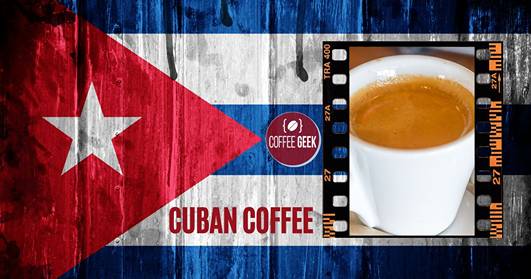
The fertile soil, warm climate, and a unique blend of traditions from Spain, Africa, and the Caribbean contributed to the distinct characteristics of Cuban coffee, helping it gain a reputation for its potency and rich taste.
The use of dark roasted beans and specific brewing techniques, often involving an espresso maker or Moka pot, also plays a crucial role in delivering a powerful caffeine kick.
Key Takeaways
- Cuban coffee is known for its strong flavor due to a combination of factors including bean selection, brewing process, and cultural traditions.
- The origins of Cuban coffee can be traced back to the early 1800s, which have contributed to its distinct flavor profile.
- Dark roasted beans, specific brewing techniques, and the presence of sugar in the coffee all play a role in enhancing its taste and strength.
- Origins and Significance of Cuban Coffee
- Why is Cuban Coffee So Strong?
- The Ingredient: Dark Roast Beans
- The Brewing Method and Equipment, Coffee Makers
- The Role of Sugar in Cuban Coffee
- Comparison with Other Types of Coffee
- Coffee Serving Traditions in Cuba
- Impact on Health and Lifestyle
- Modern Interpretations and Adaptations
- Impact of Cuban Trade Embargo on Coffee
- Frequently Asked Questions
Origins and Significance of Cuban Coffee
Cuban coffee, also known as café cubano or cafecito, has a rich history that intertwines with the cultural roots of Cuba.
The unique beverage is steeped in tradition and has a distinctive taste that sets it apart from other Latin coffees.
As Cuban immigrants made their way to places like Miami, they brought the beloved Cuban coffee with them, making it an integral part of this vibrant community.
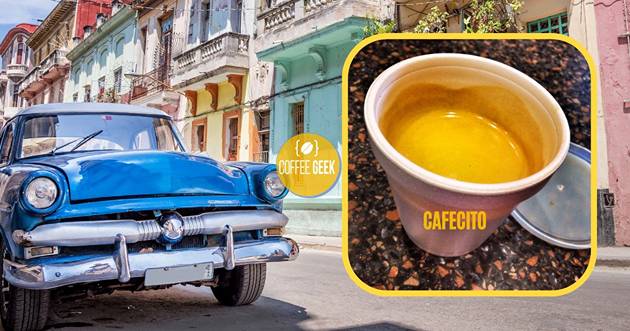
The origins of Cuban coffee can be traced back to the coffee plantations that once flourished on the island. Cuba’s optimal climate and fertile soil provided the perfect environment for high-quality beans.
These beans are typically dark roasted and finely ground coffee, resulting in a robust and intense flavor.
During the brewing process, demerara sugar is added to enhance the taste and create a delightful sweetness, and this is what makes it such a significant part of coffee drinker in Cuban culture.
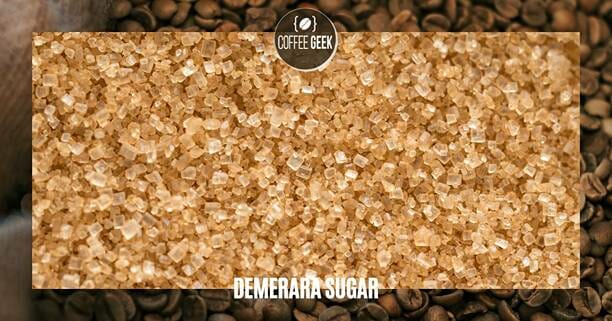
Cuban coffee stands out from other Latin coffees because of its brewing process. Traditionally, it is brewed using an espresso maker or a Moka pots, which relies on steam to extract the coffee’s rich flavor.
This technique results in a strong, intense coffee that is often associated with a potent caffeine kick.
The unique brewing process and the rich, dark beans are major factors that contribute to the strength and boldness of Cuban coffee.
In places like Miami, where Cuban immigrants have settled, Cuban coffee has evolved into a symbol of cultural expression and togetherness.
It plays a central role in social gatherings and is frequently shared among friends and family.
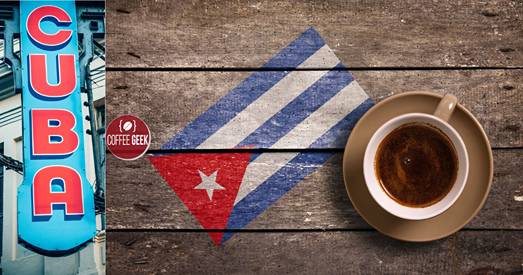
The cafecito ritual, where people come together to enjoy this strong, sweet coffee, even made its way into numerous Miami establishments, becoming an essential part of the local culture.
To sum it up, Cuban coffee is strong and distinct due to its unique brewing process, dark roasted coffee beans, and the addition of demerara sugar.
Its rich history and social significance have made it a centerpiece of Cuban culture and a cherished tradition in places like Miami.
With a friendly atmosphere surrounding the sharing of this bold coffee, it’s no wonder that the love for Cuban coffee has spread far and wide in the coffee-drinking world.
Why is Cuban Coffee So Strong?
Cuban coffee is known for its bold, intense flavor and higher caffeine content.
There are several factors that contribute to its strength, such as the beans used, the unique method of preparation, and the brewing process.
Firstly, Cuban coffee is typically made from dark-roasted Arabica beans. These beans are known for their rich and intense flavor, which ultimately contributes to the strong taste of Cuban coffee.
Furthermore, the climate and soil in Cuba play a role in providing perfect growing conditions for these high-quality beans.
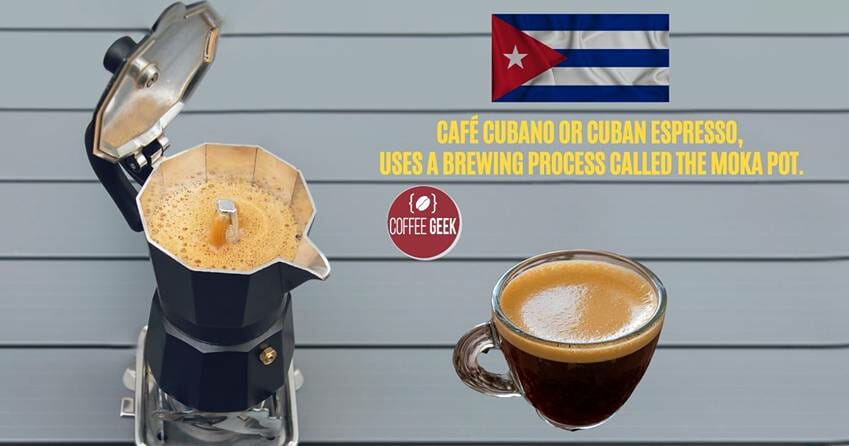
Secondly, the preparation method significantly impacts the intensity of Cuban coffee. Traditional Cuban coffee, also called Café Cubano or Cuban espresso, uses a brewing process called the Moka Pot.
This method involves applying pressure to extract the coffee, which results in a more concentrated, bold flavor compared to American coffee, which is often brewed using a drip coffee maker.
In addition to the brewing, the way a Cuban coffee is served also adds to its potency.
A key element that makes Cuban coffee is the preparation of the “espumita,” a creamy, frothy layer that is created by vigorously mixing sugar with a small amount of coffee.
The espumita creates a sweetness that balances the strong, bitter flavors of the coffee, making it more palatable when served in small, concentrated amounts.
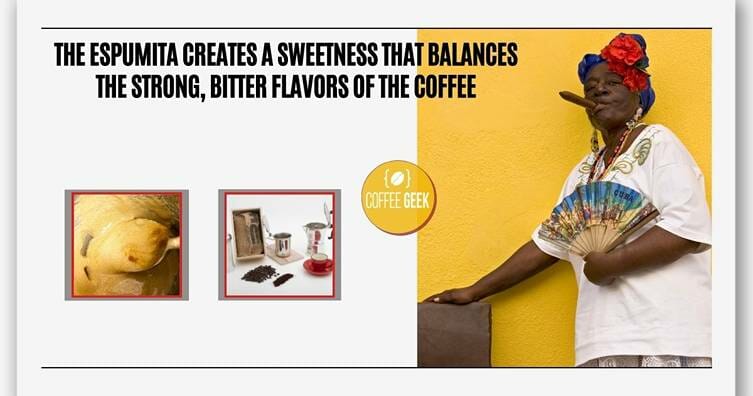
The higher caffeine content in Cuban coffee is a direct result of its brewing process, which produces a more concentrated form of coffee.
As a result, a small serving of Cuban coffee contains a relatively high amount of caffeine compared to a larger serving of American coffee.
This high caffeine concentration contributes to the intensity and boldness of Cuban coffee, making it attractive to those who enjoy strong coffee.
In summary, what makes Cuban coffee stronger is due to a combination of factors such as the beans used, the unique Moka Pot brewing process, and the espumita preparation.
Its intensity and high caffeine content have made it a popular choice for coffee enthusiasts who appreciate bold flavors.
The Ingredient: Dark Roast Beans
Arabica vs Robusta
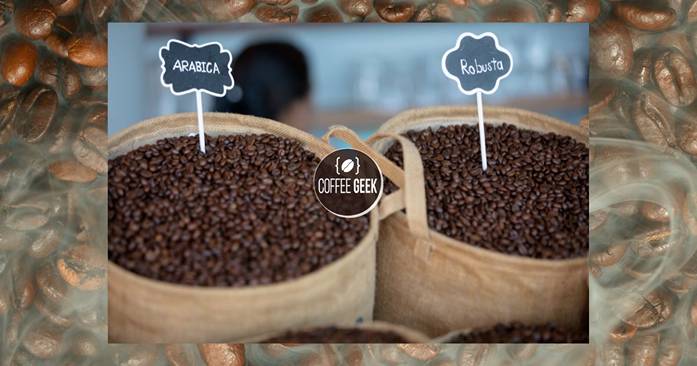
Cuban coffee is known for its bold and robust flavor, which can be partly attributed to the choice of beans and the roasting process.
Let’s take a closer look at how dark roast beans contribute to the strength of Cuban coffee.
Cuban coffee typically uses a blend of both Arabica and Robusta beans, which have their own unique characteristics.
Arabica beans are generally known for their smooth flavor, while Robusta beans are revered for their high caffeine content and strong taste.
By combining these two types of beans, Cuban coffee achieves an ideal balance of flavor and strength.
The roasting process plays a crucial role in determining the overall taste and strength of the coffee. Dark roasted coffee beans bring out a more intense and robust flavor as compared to lighter roasts.

During the roasting process, the beans are exposed to high temperatures, resulting in the development of complex flavors and the appearance of dark, shiny, and oily beans.
In Cuban coffee, the use of dark roast beans is essential to create its signature intense flavor profile.
The dark roast provides a bold and robust taste while enhancing the characteristics of both Arabica and Robusta beans.
The result is a strong coffee blend that is perfect for those who appreciate a full-bodied and impactful flavor.
In summary, the strength of Cuban coffee is a result of a careful blend of Arabica and Robusta beans, combined with the dark roasting process.
This specific choice of beans and roasting technique contributes to the rich and robust taste that Cuban coffee lovers enjoy.
So, the next time you savor a cup of Cuban coffee Cuba, remember it’s all in the dark roast beans that make it so strong and special.
The Brewing Method and Equipment, Coffee Makers
In this section, we will explore the different brewing methods and equipment, coffee makers, that contribute to the strong nature of Cuban coffee.
We will discuss the use of the Moka Pot, French Press, and Espresso Machine.
Moka Pot
The Moka Pot is a popular brewing used in making Cuban coffee. This stove-top coffee maker uses steam pressure to extract coffee from finely ground beans.
As the water heats up, steam pressure forces the hot water through the ground coffee, creating a strong and concentrated coffee.
Due to the high pressure and rapid brewing time, Pot coffee is often more robust in flavor compared to other brewing methods.
French Press
While not as common for making Cuban coffee, the French Press can still be used to create a strong and flavorful brew.
In this method, coffee grounds are steeped in hot water for a few minutes before being separated by a metal or nylon mesh filter.
The immersion brewing style results in a rich and full-bodied coffee, though it may not have the same intensity as the Moka Pot or Espresso Machine brews.

Espresso Machine
The Espresso Machine is another method commonly used for making strong Cuban coffee. Like the MokaPot, it uses steam pressure to push hot water through finely-ground beans at a rapid pace.
This process extracts a concentrated and highly caffeinated coffee, which contributes to the overall strength of Cuban coffee.
Additionally, espresso machines often offer more control over variables such as temperature and pressure, enabling users to fine-tune the brewing process and achieve desired levels of strength and flavor.
In summary, the strength of Cuban coffee can be attributed to specific brewing processs and equipment, such as the Moka Pot and Espresso Maker, which utilize steam pressure and rapid brewing times.
These factors contribute to the robust flavor and high caffeine content that make Cuban coffee so unique and powerful.
The Role of Sugar in Cuban Coffee
Cuban coffee is known for its strong flavor and unique preparation methods, where sugar plays a significant role in the process.
In this section, we will discuss the impact of sugar on various types of Cuban coffee, including Cafecito, Cortadito, and Café con Leche.
Cafecito
Cafecito, a type of Cuban espresso, is an incredibly strong coffee with a sweet twist.
Typically, sugar is added during the brewing process to form a velvety layer of sweetened foam, known as “espumita.”
This addition of sugar is not optional; it’s an integral part of the Cafecito experience, giving it the characteristic sweet and robust flavor that sets it apart from regular espresso.
Demerara sugar, a partially refined sugar with a caramel-like flavor, is often used in the preparation of Cafecito.

Cortadito
Cortadito is a variation of the traditional Cuban espresso, where steamed milk is added to create a smoother, creamier coffee. Although its base is similar to Cafecito, Cortadito contains a lower sugar-to-coffee ratio.
Sugar is still added to the espresso during the brewing process, but the presence of milk in Cortadito mellows out the sweetness, making it an excellent choice for those who prefer a less sweet, yet strong coffee.
Café con Leche
Unlike Cafecito and Cortadito, Café con Leche incorporates sugar into the beverage in a different way. Café con Leche consists of an espresso shot served alongside a cup of hot or steamed milk.
Rather than adding sugar during the brewing process, sugar is mixed directly with the hot milk, allowing the drinker to customize the level of sweetness according to their preference.
This offers a more personalized experience and enables individuals to choose their desired balance of sweetness and strength in their Café con Leche.
| Factor | Explanation |
|---|---|
| Coffee Beans | Cuban coffee typically uses dark roasted beans, which have a strong and bold flavor. |
| Brewing Method | Cuban coffee is brewed using a method called “Café Cubano,” which involves brewing espresso shots with sugar. This creates a concentrated and strong coffee. |
| Espresso Shots | Cuban coffee is often made with a higher ratio of espresso shots, resulting in a more potent caffeine concentration. |
| Sugar | Sugar is an essential part of Cuban coffee, as it’s added during the brewing process. This not only enhances the flavor but also contributes to its strength. |
| Small Serving Size | Cuban coffee is traditionally served in small cups, which means you’re getting a concentrated dose of caffeine in each serving. |
| Culture and Tradition | The Cuban coffee culture values strong coffee, and this tradition has been passed down through generations. |
| Robust Flavor | The combination of dark roasted beans, sugar, and a specific brewing process results in a robust and strong flavor. |
Comparison with Other Types of Coffee
American Coffee
American coffee is often a lighter and more diluted version of espresso, made by adding hot water to a single or double shot of espresso.
This creates a larger beverage with a more subtle taste compared to the bold and concentrated flavors found in Cuban coffee.
American coffee typically has a lower Total Dissolved Solids (TDS) content, which means it is less concentrated and contains less soluble coffee content compared to Cuban coffee.
Additionally, this coffee is usually brewed with a drip coffee machine that uses coarser grounds and a lower coffee-to-water ratio, further contributing to its milder flavor and strength.
However, it is essential to note that different brewing brewing processs and personal preferences may result in American coffee that varies in strength and taste.
The friendly atmosphere of many American coffee shops, where people gather to socialize and enjoy their favorite beverages, reflects this diversity.
Colombian Coffee
Colombian coffee is renowned for its mild to medium-bodied profile and well-balanced flavor with hints of nut and fruit notes.
It is mainly produced using Arabica coffee beans, which contribute to its less acidic and smoother taste.
Colombian coffee is generally lighter and milder than Cuban coffee, which is known for its bold, strong, and concentrated flavors.
The unique method of preparation used to make Cuban coffee, such as using Moka Pots, significantly contributes to the difference in strength between these two types of coffee.
The Moka Pot allows for a more robust extraction process, heightening the intensity of Cuban coffee.
In contrast, Colombian coffee is often prepared using a pour-over or drip method, which results in a lighter and more delicate flavor profile.
Furthermore, Colombian coffee cultivation is influenced by the mild climate and fertile volcanic soil of the Andean region.
It results in a delicate flavor complexity that diverges from the intense and dark characteristics associated with Cuban coffee.
Therefore, while Colombian coffee may be strong in flavor, it does not possess the same bold intensity found in Cuban coffee.
Coffee Serving Traditions in Cuba
A central aspect of Cuban coffee culture is the tradition of sharing and socializing with others.
One popular way to enjoy Cuban coffee is through a colada, which is a large quantity of Cuban espresso served in a large cup, alongside several smaller cups.
These small cups are used to share the colada among friends, family, or coworkers, fostering a sense of community and togetherness.
Another essential element in Cuban coffee is the creation of espuma, a creamy foam made from a mix of sugar and a little bit of coffee.
This unique method is responsible for the coffee’s intense flavor, as the sugar caramelizes during brewing, forming the espuma and enhancing the overall taste.
The art of creating the perfect espuma involves a specific technique, and it is considered an essential skill for anyone serving Cuban coffee.
When it comes to serving Cuban coffee, small cups play a significant role. Since the coffee is strong and bold in flavor, it is typically enjoyed in small portions.
This not only helps to appreciate the taste better but also facilitates the sharing aspect of Cuban coffee culture.
These small cups are usually reserved for close acquaintances, as sharing a coffee moment is a way of deepening connections and maintaining relationships.
In conclusion Cuban Coffee, the coffee-serving traditions in Cuba are all about fostering bonds and providing a rich, flavorful experience.
The methods used in brewing, along with the social aspect of sharing a colada and perfecting the espuma, are all reflective of the warm, friendly, and inviting nature of Cuban culture.
Impact on Health and Lifestyle
Coffee is known for its strong Cuban coffee taste and high caffeine content. Its unique method of preparation using a Moka Pot contributes to its remarkable strength.
But what is the impact of this strong organic coffee on an individual’s health and lifestyle?
Drinking coffee, moderate amounts of coffee, such as 2-5 cups a day, has been linked to lower likelihoods of various health issues like type 2 diabetes, heart disease, liver and endometrial cancers, Parkinson’s disease, and depression according to Harvard T.H. Chan School of Public Health.
However, it is important to keep in mind that excess caffeine consumption may lead to unwanted side effects.
An increased heart rate is a common side effect of caffeine consumption.
Consuming a strong and potent coffee like Cuban coffee may cause a temporary increase in heart rate for some individuals.
This effect could be more pronounced in those sensitive to caffeine or those with pre-existing heart conditions.
Therefore, it is essential to monitor your caffeine intake and personal reaction to it, ensuring that it doesn’t negatively impact your health.
Cuban coffee may also affect a person’s lifestyle habits. Given its strong flavor and caffeine content, this type of coffee can provide a boost of energy, mental alertness, and wakefulness.
This can be helpful for people who are looking for a pick-me-up in the morning or during a midday slump.
However, it is essential to ensure the consumption of Cuban coffee does not interfere with sleep patterns or lead to increased anxiety and nervousness.
By keeping these factors in mind and enjoying Cuban coffee in moderation, it can be a pleasant and flavorful addition to a person’s health and lifestyle routine.
Remember always to listen to your body and make adjustments accordingly to maintain a balanced and healthy lifestyle.
Modern Interpretations and Adaptations
Cuban coffee has gained popularity in various corners of the world.
As a result, coffee enthusiasts have come up with their own modern interpretations and adaptations, incorporating this strong, traditional beverage into different forms.
One such adaptation is the introduction of Cuban-style cold brew. Cold brewing is a method of making coffee by steeping grounds in cold water for an extended period.
This method extracts unique flavors and cuts down on the acid content of the brewed coffee.
By applying the cold brew method to Cuban coffee, fans have created a new way to enjoy the strong taste in a refreshing and smoother version, making it perfect for warm days or those who prefer less acidity in their coffee.
The modern era has also seen the introduction of Cuban coffee brands on e-commerce platforms, such as Amazon. This has made it easier for consumers to access and enjoy different varieties of Cuban coffee.
Popular brands like Café Bustelo and Pilon can now be conveniently purchased online, bringing distinct Cuban flavors into households worldwide.
Another modern twist on Cuban coffee involves different brewing methods.
While traditional preparation mainly includes moka pots or espresso machines, recent adaptations have seen the use of AeroPress, French press, or pour-over techniques.
These methods can result in a wide range of flavors, from bold and robust to gentle and balanced, catering to an array of taste preferences.
In summary, the strong and unique taste of Cuban coffee continues to inspire modern interpretations and adaptations.
From Cuban-style cold brew to online availability on platforms like Amazon, new ways to enjoy this classic beverage continue to emerge, allowing coffee lover to appreciate its rich history and bold flavors in various forms.
Impact of Cuban Trade Embargo on Coffee
The Cuban trade embargo has had a significant impact on the coffee industry in the country.
Implemented by the United States in 1960, the embargo restricted trade between the two nations, affecting various sectors of the Cuban economy, including coffee production.
Due to the embargo, Cuban coffee producers faced limited access to international markets, particularly the lucrative US consumer base.
This restriction led to fewer economic incentives for Cuba to invest in expanding and modernizing its coffee industry.
As a result, overall coffee production in the country has suffered, with potential growth opportunities remaining largely untapped.
In addition to hindering access to foreign markets, the embargo also impacted the availability of resources for the Cuban coffee industry.
The constraints on international trade made it difficult for the country to import the necessary technology, equipment, and agricultural inputs required to sustain a thriving coffee production sector.
Despite these challenges, Cuban coffee has retained its distinct and strong flavor profile that many people associate with the beverage.
The resilience of the coffee industry in Cuba can be partially attributed to the resourcefulness of its farmers, who have relied on traditional techniques and sustainable practices to cultivate high-quality crops under difficult circumstances.
In recent years, there have been some positive developments for the Cuban coffee industry. As diplomatic relations between the US and Cuba began to thaw, expectations arose for a potential easing of trade restrictions.
This evolution has brought about renewed optimism for Cuban coffee producers, who hope that increased access to the US market could provide a much-needed boost for their sector.
In conclusion, the Cuban trade embargo has significantly impacted the country’s coffee industry, limiting its growth and access to foreign markets.
Despite these challenges, the unique and strong flavor of Cuban coffee persists, as farmers continue to adapt and maintain their traditional techniques.
With the prospect of easing trade restrictions, the future of Cuban coffee holds the potential for further growth and recognition in the international market.
Frequently Asked Questions
What makes Cuban coffee different from espresso?
Cuban coffee is similar to espresso in its brewing, which typically uses an espresso maker or Moka pot.
However, it is still unique due to factors such as using a higher bean-to-water ratio, a smaller grind size, and specific types of beans.
As a result, this makes Cuban coffee stronger in flavor and has increased caffeine content compared to a standard espresso.
How does Cuban coffee compare to Vietnamese coffee?
While both Cuban and Vietnamese coffees are strong, they have distinct differences. Cuban coffee focuses on the method of extraction to create a potent and powerful coffee.
On the other hand, Vietnamese coffee primarily relies on the unique brewing style using a special Vietnamese coffee filter and the addition of sweetened condensed milk, which creates a sweeter and creamier drink.
What is the caffeine content of a colada coffee?
A colada is a type of Cuban coffee, typically served in a larger cup and meant to be shared with others. The exact caffeine content can vary depending on the beans and brewing techniques used.
However, it is generally agreed that Cuban coffee, including colada, has a high caffeine content due to its brewing method and increased bean-to-water ratio.
Which are the best Cuban coffee beans?
Cuba is known for growing high-quality beans, particularly in the Sierra Maestra mountain range. Some of the most famous Cuban coffee brands include Cubita, Serrano, Turquino, and Montanes.
Each brand has its unique flavors and characteristics that contribute to the signature bold taste of your own Cuban coffee.
Is Cuban coffee the strongest type of coffee?
In terms of flavor and caffeine content, Cuban coffee is considered one of the strongest types of coffee. Its brewing method and bean-to-water ratio contribute to this strength.
However, every individual has their preferences and might find other strong coffee styles more suitable, such as Turkish coffee or a double-shot espresso.
What effects does Cuban coffee have on the body?
Since Cuban coffee has a higher caffeine content compared to regular coffee, its effects can be more pronounced. These might include increased alertness, enhanced focus, and a short-term energy boost.
However, excessive consumption of Cuban coffee or any high-caffeine beverage can lead to negative side effects, such as increased heart rate, jitteriness, and trouble sleeping.
As with any caffeinated beverage, it is essential to practice moderation and be mindful of individual tolerance levels.

